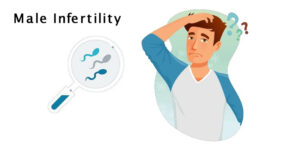Renal Cyst: Causes, Symptoms, and Treatment
Renal cysts are fluid-filled sacs that develop in the kidneys. They are a common condition and can affect people of any age. While most renal cysts are benign and do not cause any symptoms, some cysts can grow in size and cause complications. In this article, we will explore the causes, symptoms, and treatment options for renal cysts.
The exact cause of renal cysts is not clear, but some factors that may contribute to their development include:
- Age: Renal cysts are more common in people over the age of 50.
- Genetic factors: Some renal cysts may be inherited, such as those associated with autosomal dominant polycystic kidney disease (ADPKD).
- Kidney disease: Chronic kidney disease can increase the risk of developing renal cysts.
Most renal cysts do not cause any symptoms and are discovered during a routine imaging test. However, some cysts can grow in size and cause symptoms such as:
- Pain in the back or side: If the cyst grows large enough, it can cause pain in the back or side of the body.
- Abdominal discomfort: Large cysts can cause discomfort in the abdomen.
- High blood pressure: In some cases, renal cysts can contribute to the development of high blood pressure.
- Blood in urine: Large cysts can cause blood in the urine, which can be a sign of a more serious condition.
- Urinary tract infections: Renal cysts can increase the risk of urinary tract infections.
Treatment of Renal Cyst
Most renal cysts do not require treatment, and many people with renal cysts are able to live normal, healthy lives. However, in some cases, treatment may be necessary. Some common treatment options for renal cysts include:
- Observation: If the cyst is small and not causing any symptoms, the doctor may recommend simply monitoring it with regular imaging tests.
- Drainage: If the cyst is large and causing symptoms, the doctor may recommend draining the cyst with a needle.
- Surgery: In some cases, surgery may be necessary to remove the cyst, particularly if it is causing complications or is suspected to be cancerous.
- Medications: If the cyst is contributing to the development of high blood pressure, medications may be prescribed to help manage blood pressure.
Prevention of Renal Cyst
There are no known ways to prevent the development of renal cysts. However, certain lifestyle changes may help reduce the risk of complications associated with renal cysts, such as high blood pressure and urinary tract infections. These changes include:
- Drinking plenty of water: Staying hydrated can help prevent urinary tract infections.
- Eating a healthy diet: Eating a healthy diet can help manage high blood pressure.
- Managing underlying health conditions: Managing underlying health conditions such as diabetes and high blood pressure can help reduce the risk of complications associated with renal cysts.
In conclusion, renal cysts are a common condition that can affect people of any age. Most cysts do not cause any symptoms and do not require treatment. However, if a cyst is causing symptoms or complications, treatment may be necessary.




